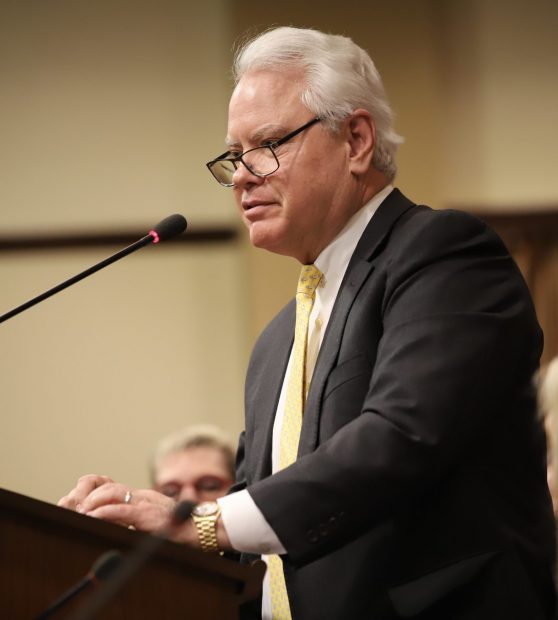The State Board of Education Friday pressed the reset button on the University of Phoenix purchase.
Voting unanimously, the board approved a one-year extension, designed to allow the University of Idaho to continue negotiating with Phoenix, a massive for-profit online university serving some 85,000 students.
The extension also sets the stage for ongoing talks with a skeptical Legislature, which blocked the U of I’s controversial $685 million purchase earlier this year.
“Will a deal happen?” said board member Kurt Liebich, who has been the board’s point person on the Phoenix purchase. “I think that will be up to the Legislature, at the end of the day.”
In addition to creating a new deadline — June 10 — the extension makes several big changes to a process that began more than a year ago.
First, the U of I will receive $5 million from Phoenix. That money will cover some of the due diligence costs the U of I has incurred while pursuing a purchase, university spokeswoman Jodi Walker said Friday. The U of I has spent at least $11 million on Phoenix-related consulting.
Second, the extension allows Phoenix and its owner, Apollo Global Management, to talk to other buyers. It also gives the private university the option of going public, by pursuing an initial public offering.
Third, it assures the U of I “breakup” fees if its deal doesn’t close. The university would receive an additional $5 million if Phoenix doesn’t sell to anyone — and $15 million if Phoenix chooses a new buyer or pursues an IPO.

During Friday morning’s board meeting, U of I President C. Scott Green gave the State Board a tempered update on the Phoenix talks. The sellers still consider the U of I the “right match,” Green said, but at the same time, “they’re also realists.”
Said Green: “We hope to keep them interested … but there’s no guarantee of that.”
But during Friday’s meeting, Green and Liebich again touted the merits of the deal.
Green said Phoenix’s business model remains strong: The university is making money, its enrollment is increasing, and its academic programs and business partnerships are solid. “We owe to the citizens of Idaho to continue to work toward a solution.”
And 13 months after the State Board first approved the idea, Liebich said, a Phoenix partnership still promises to reshape Idaho higher ed. It would expand online offerings; reach adult learners, especially in rural communities; offset the effects of a declining birth rate and dwindling numbers of 18- to 22-year-old adults; and provide a new revenue source, as legislators put a decreasing share of the state budget into higher ed.

While the selling points are unchanged, the legal and political terrain remains shaky.
Attorney General Raúl Labrador has taken the State Board to the Idaho Supreme Court, challenging their closed-door discussions of Phoenix. The year-long and ongoing legal dispute has prevented the U of I from going into the bond market to finance a purchase.
Meanwhile, both houses of the Legislature voted to stall or stymie the Phoenix deal, putting the purchase in jeopardy.
An extension will allow the U of I and Phoenix to continue to negotiate with legislators, Green said.
But Friday offered a glimpse into how difficult this process could be.
After the State Board’s hybrid meeting adjourned — and after Green and other U of I administrators had signed off — Rep. John Gannon buttonholed the State Board officials who were meeting in person in a board conference room.

Gannon, D-Boise, has been a leading critic of the Phoenix purchase, co-sponsoring a House-passed resolution opposing the deal. On Friday, Gannon peppered board officials with several questions — and repeatedly asked if the U of I would wind up on the hook for any of Phoenix’s existing liabilities.
Board officials pointed to an offer Green made Friday: Lawmakers might be allowed to see more details about the deal, if they agree to sign a nondisclosure agreement. Liebich said the State Board’s outreach will ramp up after the November elections and the Legislature’s internal leadership elections.
Gannon seemed less than convinced.
“Making all of the information available to everybody is the first step,” he told Liebich.
Click here for Idaho EdNews’ exclusive, in-depth Phoenix coverage.
